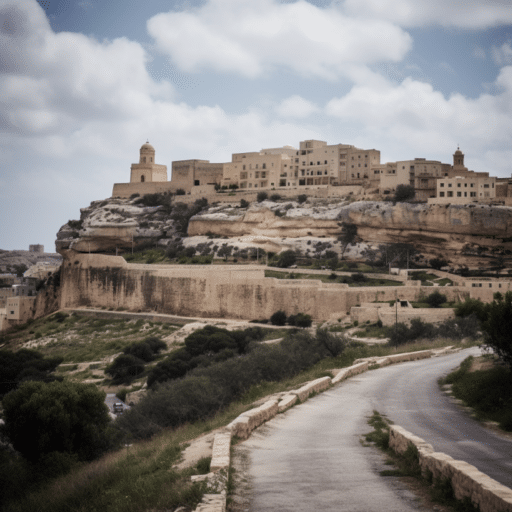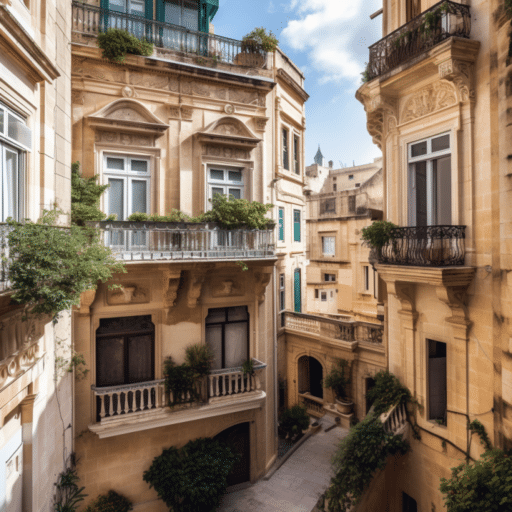Property in Malta is a popular and attractive investment option for many people, whether they are looking to buy a holiday home, invest in rental properties, or simply relocate to this beautiful Mediterranean island.
However, with so many different areas and property types to choose from, it can be overwhelming to know where to start your search. That’s why it’s important to have a good understanding of the property market in Malta, including the best areas to buy property and the types of properties available.
This blog aims to provide readers with a comprehensive guide to the best areas to buy property in Malta, including information on the local amenities, transport links, property prices, and potential risks or downsides to buying property in each area.
If you want to invest as an expat or high-net-worth individual, which is what I specialize in, you can email me (advice@adamfayed.com) or use WhatsApp (+44-7393-450-837).
What are the top areas to consider when buying property in Malta?
When it comes to buying property in Malta, there are many different areas to choose from, each with its own unique charm and character. However, there are five areas that stand out as particularly popular and attractive options for property buyers. These areas are:
Sliema
Located on the east coast of Malta, Sliema is a bustling and cosmopolitan area with a wide range of amenities, including shopping malls, restaurants, and bars. Property prices in Sliema are relatively high, but the area offers stunning sea views and easy access to the capital city of Valletta.
St. Julian’s
Another popular area on the east coast of Malta, St. Julian’s is known for its vibrant nightlife and entertainment scene. It is also home to a number of luxury hotels and resorts, making it a popular choice for tourists and expats. Property prices in St. Julian’s can be high, but there are also more affordable options available.
Valletta
As the capital city of Malta, Valletta is steeped in history and culture, with a number of UNESCO World Heritage sites and museums to explore. Property prices in Valletta can be quite high, but the area offers a unique and charming living experience.
Mdina
Located in the center of Malta, Mdina is a fortified city known for its stunning architecture and beautiful views. It is a quieter and more peaceful area than some of the more bustling coastal towns, making it a popular choice for those looking for a more tranquil living environment.
Gozo
While technically not a specific area of Malta, the island of Gozo is a popular destination for property buyers looking for a quieter and more rural living experience. With beautiful beaches, scenic countryside, and a relaxed way of life, Gozo offers a unique and idyllic living environment.

While technically not a specific area of Malta, the island of Gozo is a popular destination for property buyers looking for a quieter and more rural living experience.
What types of properties are available in these areas?
There are many different types of properties available in the top areas to consider when buying property in Malta.
Apartments are the most common type of property in Malta, and can range from small studios to large luxury penthouses. Many apartments in Malta offer stunning sea views and balconies or terraces for outdoor living.
Townhouses are a popular option in some of the older and more traditional areas of Malta, such as Valletta and Mdina. These properties offer a unique and charming living experience, with traditional Maltese architecture and often stunning views.
Villas are more commonly found in the quieter and more rural areas of Malta, such as Gozo. These properties offer more space and privacy than apartments or townhouses, and often come with outdoor areas such as gardens or pools.
Penthouses are a luxury property type that are often found in the more expensive areas of Malta, such as Sliema and St. Julian’s. These properties offer stunning sea views and often come with large terraces or rooftop gardens.
Farmhouses are a unique property type that are often found in the countryside areas of Malta, such as Gozo. These properties offer a traditional and rustic living experience, with features such as stone walls, courtyards, and outdoor spaces for farming or gardening.
What are the average property prices in these areas?
The average property prices in the top areas to consider when buying property in Malta can vary widely depending on the type of property and the specific location within the area.
Sliema is known for having some of the highest property prices in Malta, with the average price for a 2-bedroom apartment ranging from €400,000 to €700,000. Luxury penthouses and villas in Sliema can cost several million euros.
Property prices in St. Julian’s are slightly more affordable than in Sliema, with the average price for a 2-bedroom apartment ranging from €250,000 to €500,000. Luxury properties in St. Julian’s can cost upwards of €1 million.
Valletta is a highly sought-after location, and property prices in the city can be quite high. The average price for a 2-bedroom apartment in Valletta ranges from €350,000 to €550,000, with larger properties and townhouses costing several million euros.
Mdina is a quieter and more rural area than some of the more popular coastal towns, and property prices here tend to be slightly lower. The average price for a 2-bedroom townhouse in Mdina ranges from €300,000 to €500,000.
Property prices in Gozo are generally more affordable than in Malta, with the average price for a 2-bedroom apartment ranging from €150,000 to €300,000. Villas and farmhouses in Gozo can cost upwards of €1 million, but there are also more affordable options available.
It’s important to note that these are just average prices and that individual properties can vary widely in price depending on a variety of factors, including location, size, and condition. Additionally, the Maltese property market is highly competitive, and prices can change rapidly depending.
What amenities and facilities are available in these areas?
Sliema is a bustling and cosmopolitan area with a wide range of amenities and facilities. There are numerous shopping centers, including the Tigne Point and The Point shopping malls, as well as a variety of restaurants, bars, and cafes. Sliema also offers easy access to the seafront promenade, which is perfect for leisurely walks and enjoying the stunning views.
St. Julian’s is known for its vibrant nightlife and entertainment scene, with numerous bars, nightclubs, and casinos. The area also offers a variety of dining options, ranging from casual cafes to high-end restaurants. St. Julian’s is also home to several luxury hotels and resorts, including the Hilton and the InterContinental.
Valletta is a cultural and historical hub, with numerous museums, galleries, and landmarks to explore. The city is home to several theaters and concert halls, as well as a variety of restaurants and cafes. Valletta also offers easy access to the seafront promenade, which is perfect for scenic walks and relaxing by the water.
Mdina is a quieter and more peaceful area than some of the more bustling coastal towns. The area offers a variety of cultural attractions, including the Mdina Cathedral and the Mdina Dungeons, as well as a variety of restaurants and cafes. Mdina is also known for its stunning views of the surrounding countryside.
Gozo is a more rural and relaxed area than the other locations on this list. The island offers a variety of outdoor activities, including hiking, swimming, and snorkeling. There are also several cultural attractions to explore, such as the Ggantija Temples and the Citadel in Victoria. Gozo also offers a variety of restaurants and cafes, as well as a weekly farmers’ market.
What are the transportation links like in these areas?
The top areas to consider when buying property in Malta all offer a variety of transportation options, including buses, taxis, and ferries.
Sliema is well connected to the rest of the island, with a variety of bus routes running through the area. The Valletta Ferry Service also operates from Sliema, providing a convenient and scenic way to travel to the capital city. There are also several taxi services available in the area.
St. Julian’s is also well connected to the rest of the island, with several bus routes running through the area. The area also offers a variety of taxi services, as well as boat trips and water taxis to nearby locations.
Valletta is the hub of Malta’s public transport system, with numerous bus routes running through the city. The Valletta Ferry Service also operates from the city, providing connections to Sliema and other nearby locations. The area also offers a variety of taxi services.
Mdina is a quieter and more rural area than some of the more bustling coastal towns, and public transport options are somewhat limited. However, there are several bus routes that run through the area, and taxis are also available.
Gozo is connected to the main island of Malta by a regular ferry service, with ferries running every 45 minutes. There are also several bus routes that run through the island, as well as taxi services and car rentals.

The top areas to consider when buying property in Malta all offer a variety of transportation options.
Are there any specific regulations or restrictions that apply to buying property in these areas?
Yes, there are some specific regulations and restrictions that apply to buying property in Malta, particularly for non-Maltese buyers. Here are some of the key regulations and restrictions to be aware of:
Acquisition of Immovable Property (AIP) Permit
Non-Maltese buyers are generally required to obtain an AIP permit before purchasing property in Malta. The permit is issued by the Ministry of Finance and is intended to ensure that the property purchase is in line with Malta’s economic and social policies.
Residency requirements
Non-Maltese buyers who wish to purchase property in Malta may be subject to residency requirements, particularly if they are looking to take advantage of certain tax incentives. The exact requirements can vary depending on the property and the buyer’s circumstances.
Property taxes
Non-Maltese buyers may be subject to higher property taxes than Maltese buyers, particularly if they do not have residency in Malta. It’s important to understand the tax implications of owning property in Malta before making a purchase.
Restrictions on property types
Some areas in Malta, particularly those with historic or cultural significance, may have restrictions on the types of properties that can be purchased or the renovations that can be made. It’s important to understand any restrictions that may apply to the specific property you’re interested in.
Restrictions on property ownership
Non-Maltese buyers may face restrictions on property ownership in certain areas, particularly if the property is located near sensitive sites such as military installations. It’s important to understand any restrictions that may apply to the specific property you’re interested in.
What are the local communities and neighborhoods like in these areas?
Sliema is a bustling and cosmopolitan area, with a mix of Maltese and international residents. The area is popular with both tourists and expats, and offers a vibrant and diverse community.
The seafront promenade is a popular gathering place for locals and visitors alike, and the area offers a wide range of dining, shopping, and entertainment options.
St. Julian’s is known for its lively and social atmosphere, particularly in the Paceville area, which is home to numerous bars and nightclubs.
The area is popular with both locals and tourists, and offers a diverse and cosmopolitan community. St. Julian’s also offers easy access to the sea, with several beaches and swimming spots nearby.
Valletta is a historic and cultural hub, with a strong sense of community and local pride. The city is home to a mix of Maltese and international residents, and offers a diverse range of cultural attractions and events.
The local community is active and engaged, with a variety of festivals and celebrations throughout the year.
Mdina is a quieter and more peaceful area than some of the more bustling coastal towns, and offers a strong sense of community and local pride. The area is known for its historic and traditional character, and many of the residents are involved in preserving the area’s cultural heritage.
Mdina offers a close-knit and supportive community, with a variety of local events and festivals throughout the year.
Gozo is a more rural and relaxed area than the other locations on this list, and offers a strong sense of community and local culture. The island has a close-knit and supportive community, with many residents involved in traditional crafts and agriculture.
Gozo offers a slower pace of life and a strong connection to nature, making it an attractive option for those looking for a tranquil and peaceful living environment.

As with any property purchase, there is a risk of hidden defects or issues with the property that may not be immediately apparent.
How do these areas compare to other popular property markets in Malta?
Malta is a relatively small country, but there are still many different areas to consider when buying property.
While the top areas we have discussed are certainly popular and attractive options for buyers, there are also other areas that may be worth considering.
Sliema and St. Julian’s are both popular coastal towns on the east coast of Malta, and both offer a wide range of amenities and facilities.
However, Sliema is generally considered to be more upmarket and expensive than St. Julian’s, with higher property prices and a more exclusive feel.
Valletta is the capital city of Malta and offers a rich history and cultural heritage. Floriana, which is located just outside Valletta, offers a similar feel but with slightly more affordable property prices. Both areas offer a range of cultural attractions and a strong sense of community.
Mdina is a fortified city known for its stunning architecture and peaceful way of life. Rabat, which is located just outside Mdina, offers a similar feel but with slightly more affordable property prices. Both areas offer a strong sense of community and a rich cultural heritage.
Gozo is a quieter and more rural area than the other locations on this list, and offers a strong connection to nature and a slower pace of life.
Mellieha, which is located on the northern coast of Malta, offers a similar feel but with slightly more amenities and facilities. Both areas offer stunning natural beauty and a unique living environment.
What are some potential risks or downsides to buying property in these areas?
While buying property in Malta can be an exciting and rewarding investment, there are some potential risks and downsides to be aware of. Here are some of the key risks and downsides, and how they can be mitigated:
Property market fluctuations
The Maltese property market can be subject to fluctuations, with property prices and demand affected by various economic and political factors. To mitigate this risk, it’s important to do your research and work with a reputable real estate agent who can provide insight into market trends and conditions.
AIP permit restrictions
Non-Maltese buyers are generally required to obtain an AIP permit before purchasing property in Malta, and this process can be lengthy and complicated. Start the process early and work with a professional who has experience navigating the permit process.
Hidden property defects
As with any property purchase, there is a risk of hidden defects or issues with the property that may not be immediately apparent. Have a thorough property inspection and work with a reputable real estate agent who can provide guidance on potential issues.
High property taxes
Non-Maltese buyers may be subject to higher property taxes than Maltese buyers, particularly if they do not have residency in Malta. To mitigate this risk, it’s important to understand the tax implications of owning property in Malta before making a purchase, and to work with a professional who can provide guidance on tax planning strategies.
Cultural differences
Moving to a new country and culture can be challenging, and non-Maltese buyers may face some cultural differences and challenges in adjusting to life in Malta. Do your research and learn as much as possible about the local culture and customs, and to work with a professional who can provide guidance on local living.
Pained by financial indecision? Want to invest with Adam?

Adam is an internationally recognised author on financial matters with over 830million answer views on Quora, a widely sold book on Amazon, and a contributor on Forbes.



